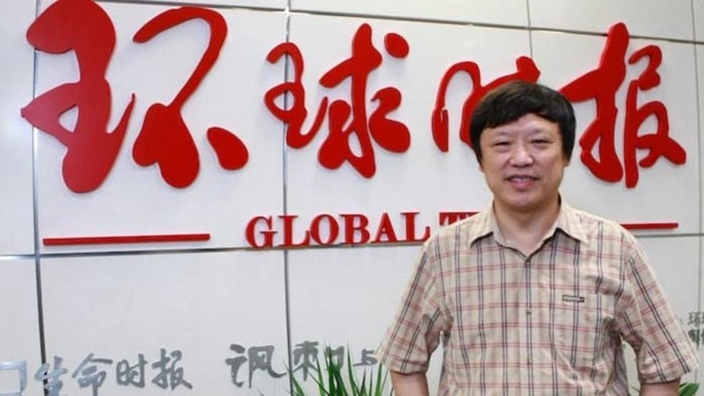Widgetized Section
Go to Admin » Appearance » Widgets » and move Gabfire Widget: Social into that MastheadOverlay zone
Hu Xijin, editor-in-chief of Global Times, retired

Hu Xijin, the editor-in-chief of the Chinese official media Global Times, known for his sharp tongue, announced on December 16, that he is retiring from the post but will “continue to do his best for the party’s news and public opinion work” as a contributing commentator.
Hu Xijin was born in Beijing in 1960. He graduated from Nanjing Institute of International Relations of the PLA with a bachelor’s degree in 1982 and received a master’s degree in Russian literature from Beijing Foreign Studies University in 1989. Hu Xijin also went to Tiananmen Square during the June 4, 1989 uprising, but escaped “just in time” before the martial law forces cleared it. But that didn’t stop Hu from describing himself with hindsight as a former pro-democracy demonstrator.
“Old Hu will be 62 years old next year and it’s time to retire,” Hu Xijin wrote on his microblog on Thursday. I have completed the formalities of retirement and will no longer serve as editor-in-chief of The Global Times.”
After finishing his studies in 1989, Mr. Hu worked for the international department of The People’s Daily, the Communist Party’s mouthpiece, and also served as its correspondent in the former Yugoslavia. Hu Xijin became deputy editor of Global Times, a tabloid owned by the People’s Daily, in 1997 and has been editor of Global Times since 2005.
The Global Times often publishes scathing editorials on China’s diplomacy, defense and international affairs, and Mr. Hu himself frequently publishes hard-line commentary on social media, fanning the flames of rising nationalism among the Chinese public. But while that has raised Mr. Hu’s profile and fanbase, it has sometimes embarrassed Beijing officials because of his tendency to misuse words or overreach in giddy comments.
Earlier this year, tight in the u.s.-china relationship, hu to increase China’s nuclear deterrent against the United States, in the comments publicly called on China will increase the number of nuclear warheads as soon as possible to more than 1000, make the Chinese foreign ministry and defense ministry didn’t know how to follow up, because so far, China’s nuclear policy called is to maintain a minimum deterrent.
In addition, as Beijing has increased its military threats and intimidation against Taiwan in recent years, the U.S. government has also gradually increased its support and unofficial exchanges with Taiwan. In order to cater to his nationalistic fans, Hu often secretly set red lines for u.s.-Taiwan relations, and often tried to find ways to justify them when the red lines were broken. If Hu xijin’s red line is indeed Beijing’s, Taiwan war may have been fought many times before.
There were mixed reactions on Chinese social media after Hu Xijin announced his retirement.
Someone said, “If old Hu were really retired, no one would see him anymore. Every other paper is the same now.”
Another said, “After scolding for a long time, I suddenly have to leave without scolding, but I still feel a bit cute.”
Another said, “If Hu Xijin loses his status as a teacher, is there still such a wide space for speech? Will it also be deleted by weibo?”
Some people cheered Hu Xijin’s departure, “Regardless of his position, Hu Xijin’s level is very poor, his ability is not worthy of his position, should have made room for good people.”

